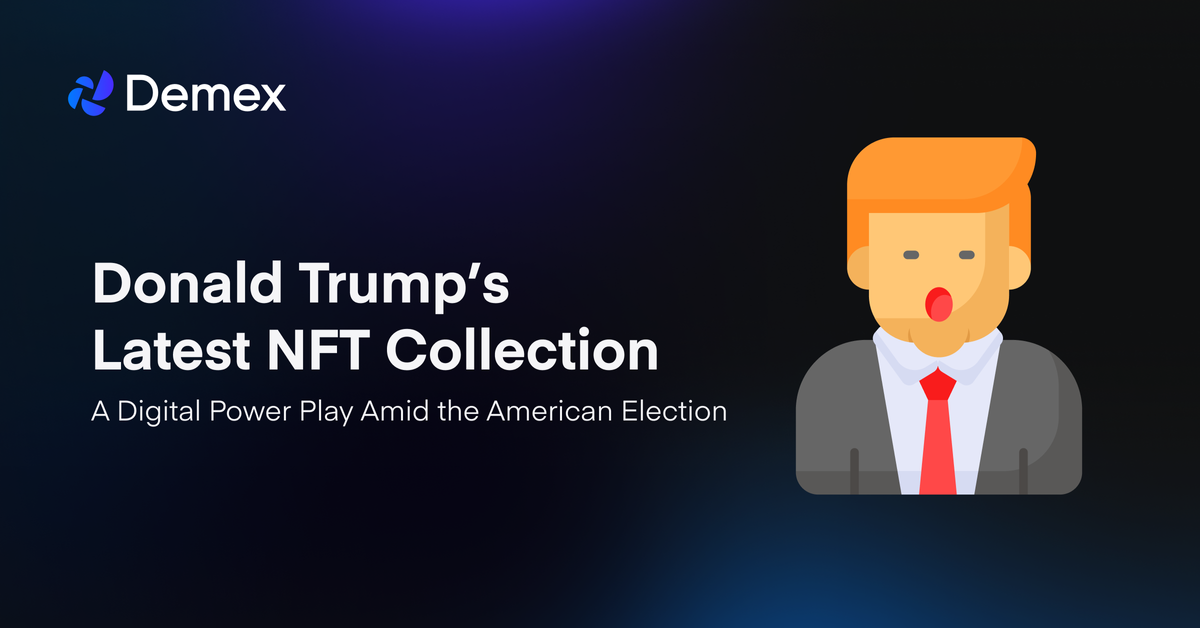Donald Trump’s Latest NFT Collection: A Digital Power Play Amid the American Election

As the 2024 U.S. presidential election heats up, Donald Trump has launched his latest NFT collection, the "America First Edition," comprising 360,000 digital trading cards. The collection, priced at $99 per card, has already generated over $2 million in sales. However, this release comes at a politically charged moment, with the U.S. Securities and Exchange Commission (SEC) threatening legal action against the NFT marketplace OpenSea. The timing of the SEC’s threat has sparked significant controversy, raising questions about the intersection of politics, digital assets, and regulatory oversight.
Donald Trump: A Digital Maverick in Politics
Donald Trump, the former president and current Republican presidential candidate, has positioned himself as a proponent of digital innovation, including cryptocurrencies and NFTs. Historically critical of digital assets, Trump's recent embrace of NFTs underscores his attempt to appeal to a tech-savvy electorate and enhance his political branding. His appearance as a keynote speaker at this year's Bitcoin Conference further highlighted his newfound support for digital currencies.
The "America First Edition" NFT collection is not just a fundraising effort; it represents a strategic move to engage with a younger, tech-oriented voter base. The collection features Trump in various imaginative scenarios, including playful depictions with Bitcoin. Buyers gain access to exclusive perks such as event invitations and collectible memorabilia, enhancing the appeal of the digital cards.

The NFT Collection: Features and Public Reception
The "America First Edition" NFTs are minted on the Polygon blockchain and come with a range of benefits for holders. Despite the grand scale of the project, initial sales have been slower than anticipated, with only around 21,000 cards sold out of the total 360,000 available. This slower uptake could reflect market saturation or a disconnect between the collection's novelty and its appeal to Trump's base.
Regulatory Controversy: The SEC’s Threat and OpenSea’s Response
The timing of Trump’s NFT launch coincides with significant regulatory scrutiny. The SEC has issued a Wells notice to OpenSea, threatening legal action on the grounds that NFTs may be classified as securities. This development has stirred controversy, particularly as it follows closely on the heels of Trump’s NFT release.
OpenSea’s CEO, Devin Finzer, responded robustly to the SEC’s threat, expressing shock at what he views as an overreach by the regulator. In a statement on social media, Finzer criticized the SEC’s approach, arguing that it threatens the innovation and livelihood of artists and creators within the NFT space. He highlighted how NFTs have enabled countless artists and developers to thrive and warned against stifling creativity through regulatory overreach. OpenSea has pledged $5 million to support legal defenses for creators facing similar challenges, emphasizing their commitment to protecting the NFT ecosystem.

The SEC’s focus on NFTs and the timing of its actions have drawn widespread criticism on Crypto Twitter, with many users suggesting that the regulatory move may be politically motivated. The backlash highlights the ongoing tension between crypto enthusiasts and regulators, and raises concerns about the broader implications for the digital art market.

The TLDR
Donald Trump’s new NFT collection, the "America First Edition," has earned over $2 million but faces slow sales. Launched amid regulatory turmoil, the collection’s release coincides with the SEC’s threat to sue OpenSea, alleging that NFTs could be classified as securities. OpenSea’s CEO has criticized the SEC’s approach, arguing that it jeopardizes innovation and the livelihoods of creators. The timing of the SEC’s threat has sparked controversy, with critics suggesting a political motive and highlighting ongoing tensions between the crypto industry and regulators.

